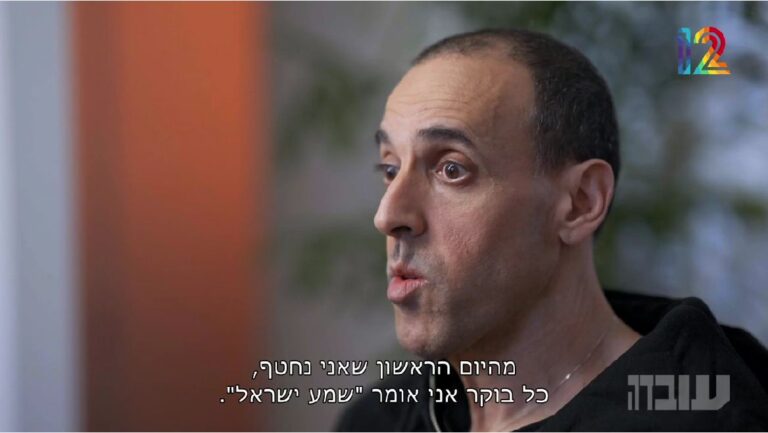 [By Rabbi Yair Hoffman]
[By Rabbi Yair Hoffman]
Generally speaking, the Pope who is the head of the Roman Catholic Church, does not affect the observance of Orthodox Jewish halachic practice.
In 1582, however, Pope Gregory XIII’s changes to the calendar did have some repercussions in our halachic observance, at least in the way we record the secular date as to when in the year we begin amending one line in the Shmoneh Esreh in Chutz La”aretz. In Israel itself we began saying it at Maariv of the 7th of Cheshvan.
The Pope made three changes to the Julian Calendar, but at first, only the Catholic countries followed it.
1] He fast-forwarded the calendar ten days. In 1582, there was no October 5th through October 14th.
2] He ruled that every 100 years there would not be a leap year. There was no February 29th in the year 1900.
3] He ruled that every 400 years there would be a leap year and that rule number two would not apply. Rule #3 has only be used twice in the year 1600 and in the year 2000.
What this boils down to is that until the year 2101 we begin saying v’sain tal umatar on the night of December 4th and before a leap year we begin saying it on the night of December 5th.
As an interesting note, if ArtScroll would have existed in the 1800’s it would have said to add in v’sain tal uMatar on December 3rd and before a leap year on December 4th.
IF ONE FORGOT
What happens if you forgot to add it in?
There are actually two major brachos of the 19 brachos in Shmoneh Esreh where it can be added in – Baraich Alainu and Shmah Kolainu. Ideally we shoot for the first, but if not we can do it in the later one.
IN BARAICH ALEINU
So the answer to what you should do if you did forget, depends upon when you remembered that you did not add it in. If you remembered before saying Hashem’s name at the end of the bracha of Baraich Alaynu, then just go back to v’sain tal umatar and continue from there (MB 117:15).
IN THE NEXT OPPORTUNITY
If you remembered after saying Hashem’s Name, then you just continue on until the Bracha of Shma Koleinu and add the words, “v’sain tal umatar livracha” right after “vkabel berachamim veratzon es tfilasainu” and before “ki attah shomaya tfilas” (MB 117:16). If one still forgot and did not yet say Hashem’s name at the end of the bracha, then just say “v’sain tal umatar livracha and continue saying Ki Attah shomaya.
If you have already said Hashem’s Name – then we have a debate between the Mishna Brurah and Rav Moshe Feinstein zt”l as to what to do. The Mishna Brurah (117:19) says to say “Lamdeini chukecha” – a Pasuk in TaNach and then to say v’sain Tal uMatar livracha and finish with Ki Attah Shomaya.
Rav Moshe Feinstein questions this and asks how it is possible to just recite random Psukim in the Shmoneh Esreh? [He recommends that one just finish up the bracha and add it before one says Retzai, like the Shulchan Aruch recommends to do if you did end up finishing Shma Kolainu.] Unless you are a talmid of Rav Moshe, most people follow the Mishna Brurah.
IF YOU FINISHED SHMA KOLEINU
If one has already completed the entire Shmah koleinu bracha without having said v’sain tal uMatar, then the Shulchan Aruch rules that you just say it then and recite Retzai.
If you forgot to say it before then and actually started retzai – then you are now in for some major repeating. You have to stop where you are and just go back to the beginning of Baraich Aleinu and continue saying the Shmoneh Esreh from there.
IF YOU FINISHED THE SHMONEH ESREH
If you forgot it and completed the Shmoneh Esreh – then repeat the entire Shmoneh Esreh from the beginning (See SA 117).
NOT SURE WHAT YOU SAID
If you are not sure what you said, we assume you didn’t say it for the first 30 days. After 30 days, we assume that you did say it properly. The Mishna Brurah (114:40) suggests that if you sing the words “v’es kol minei s’vu’asah l’tova v’sain Tal uMatar livracha” 90 times then the assumption changes. We assume that you did say it. On Maariv of January 3rd (or January 4th of a leap year) is the day when the assumption changes if you did not end up following the 90 times recommendation.
My father-in-law, Rabbi Yaakov Hirch z”l, used to keep a piece of paper in his siddur at Baraich Aleinu for those thirty days in order to remind him to add it in. This is a good idea. It also saves on not having to say the formula 90 times.
For the record, the changes were not Pope Gregory’s original idea. The idea first came from an Italian doctor named Aloysius Lilius. Most of what was to become America did not adopt it, however, until 1752.
The author can be reached at [email protected]











10 Responses
What if you only realize that you didn’t say it after chatzos? do you say 2 minchas?
Pope Gregory XIII’s changes to the calendar did have some repercussions in our halachic observance, at least in the way we record the secular date as to when in the year We recite Birkas haChamo; In 1897 we recited Birkas haChamo on April 7th. In 2121 we shall be reciting Birkas haChamo on April 9th. In 1925, 1953, 1981, 2009, 2037, 2065, 2093 we recite Birkas haChamo on April 8th.
What if you are a woman who davens only shacharis and mincha? Do have to wait 45 days before you can rely that you probably said it? And actually, even a man only says it 78 times in 30 days because v’sein tal umotor is not said on Shabbos, of which there are 4 in 30 days. How would that impact on a woman who davens only once or twice a day (especially considering the number of shabbasos that would occur during that span of time?)
Rabbi hoffman one big error ,he deleted 10 days March 5th became March 15th thats why we where then 10 days ahead he made nov 22nd nov 12 ,we did not accept that so when he got to nov 22 we were at dec 2nd ,because he forced Jewish coversions . Nor did yhe Greek orthodox (Russian) church accept it till 1914 . So today its dec 4th (each 128 yrs it moves up 1 day. B/c The year is not 365+ 1/4 its not 6 hrs its 5h and 49 min. 11 min less. The BY on the TUr satys nov 22 is the din as it was for 3000 yrs. Not one major posek ever said dec 4th name one
(The Kitzur is a chumreh sefer for the not advanced TCH name one from the MB back, name one !!!!!!!! its like a bas kol that came dn from shmayim and all accepted it ,its an ex. of haminhag sheoker halacha ,there is such a halacha in SA why? dos iz to kasha
This article does not explain why we didn’t go along with the popes correction of the calendar. We should be starting 60 days after the fall equinox, but now clearly start 15 days later, because no rabbi wants to fix the mistake. If Mashiach doesn’t come, and we stay the course of starting a day later 3 times every 4 hundred years, we will eventually start saying it the day we stop. We have to put a stop to this madness now and should have started on November 22 saying mashiv haruach.
bugnot don’t worry. since we only move the Julian calendar 3 days every 400 years away from the Gregorian calendar it will take about 14800 years for your scenario to play out.
(14800/400*3 = 111 days) dec 4 +111 = March 25th earliest date for Pesach. In the year before a leap year it would be pushed by 1 more day which would calculate to the 1st day of chol hamoed (in israel)
Bugnot-Another solution would be to move to EY, and start on 7 Marcheshvan every year (it can’t even fall on Shabbos, so we always start then)
[Sorry, couldn’t resist the obligatory aliyah option post].
That aside, I believe the years given for the next scheduled transition of dates are not quite right. In 2099, the date will move to Dec 5th at night, as it does every four years. HOWEVER, since 2100 will not be a leap year the date will not reset to Dec 4th, and those in Chu”L will continue starting Tal uMatar on Dec. 5th until 2103, when it will move to Dec. 6th, only to get pushed back to Dec 5th because of the leap year in 2104. So it is scheduled to continue throughout the 2100s.
Actually, I should slightly correct something I wrote above. I just checked a calendar, and in 2104, Dec 5th is Friday night, so it turns out that the day that those in chu”l would actually start Tal uMatar in 2104 is ALSO Dec 6th, but it would get moved back to Dec 5th in 2105.
“Most of what was to become America did not adopt it, however, until 1752.”
While the English colonies did not adopt the Gregorian calendar until 1752, colonies of Spain (at that point limited to Florida, New Mexico, and a little bit of Texas as far as what would become part of the US eventually) adopted the Gregorian calendar as soon as it was created and colonies of France (the Mississippi valley as far north as Illinois, and the Great Lakes region) used the Gregorian calendar from the very beginning of settlement. Interestingly, so did the Dutch colony New Netherlands (now New York, New Jersey, and Delaware) and when the English took over in the 1660s they put the colony back on the Julian Calendar! So most of what became America had by 1752 either been using the Gregorian calendar or had yet to experience European settlement.
“we will eventually start saying it the day we stop”
True, but even before then, we will be celebrating Pesach in the summer.